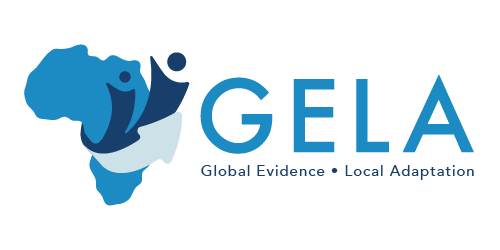Nigeria national guideline on early versus delayed enteral feeding for improving outcomes in low-birthweight and pre-term infants
Published by Secretariat on Jul 31, 2025
Disclaimer
These clinical guidelines are a general guide to appropriate practice, to be followed subject to the clinician’s judgement and the patient’s preference in each case. The guidelines are not intended to be prescriptive. They are designed to provide information to assist decision-making and have been informed by the highest quality evidence available at the time of compilation. Accordingly, the parties involved in the development of these guidelines shall have no liability to any users of the information contained in this publication for any loss or damage, cost or expense incurred or arising from reliance on the information contained in this publication.
Cover image by Google Gemini (https://gemini.google.com)
Sponsors
We are grateful to the European and Developing Countries Clinical Trials Partnership (EDCTP) for awarding funding (grant number RIA2020S-3303-GELA) to the GELA consortium partnership. The views and opinions of the authors expressed herein do not necessarily state or reflect those of EDCTP.
Contact
Dr Tamara KredoAbstract
Nigerian Federal Ministry of Health & Social Welfare- GELA guideline on early versus delayed enteral feeding for improving outcomes in pre-term and low-birthweight infants, first edition. This guideline was published in 2025 (last literature search until 2022).
Access: Guidelines may be accessed online or as a PDF generated from the MAGICapp online platform: https://app.magicapp.org/#/guideline/8949.
Project details: This guideline was co-developed by the Global Evidence, Local Adaptation (GELA) Project team in partnership with the Federal Ministry of Health & Social Welfare (FMHSW), Nigeria. GELA aims to maximise the impact of research evidence for poverty-related diseases by increasing the capacity of decision-makers and researchers to use global evidence to develop locally relevant guideline recommendations for newborn and child health in three sub-Saharan African countries – Malawi, Nigeria, and South Africa.
Details available at: https://africa.cochrane.org/projects/GELA
This work is available under the Creative Commons Attribution Non Commercial-Share Alike 3.0 IGO license (CC BY-NC-SA 3.0 IGO; https://creativecommons.org/licenses/by-nc-sa/3.0/igo/). Under the terms of this license, you may copy, redistribute, and adapt the work for non-commercial purposes, provided the work is appropriately cited. In any use of this work, there should be no suggestion that the GELA research team endorses any specific organisation, product or service. The use of the GELA or partner logos is not permitted. If you adapt the work, then you must license your work under the same or equivalent Creative Commons license. If you translate this work, add the following disclaimer and the suggested citation: “This translation was not created by the Global Evidence, Local Adaptation (GELA) research team. GELA is not responsible for the content or accuracy of this translation. The original English edition shall be the binding and authentic edition”.
The project team partnered with national Ministries of Health to support decision-makers in creating child-health guidelines, building on available guidance from the World Health Organization and adapting to the local setting. Partners include African and international leaders in evidence-based healthcare and guidelines methods, and collaboration with the civil society group Save the Children International. GELA incorporated a multi-faceted, multidisciplinary research and capacity-strengthening programme using primary and secondary research, guideline-adaptation methodology and digital platforms to support delivery and local adaptation.
The GELA project team was coordinated by the Health Systems Research Unit, South African Medical Research Council in partnership with the Norwegian University of Science and Technology, Western Norway University of Applied Science, Centre for Evidence-based Health Care, Stellenbosch University (South Africa), University of Calabar Teaching Hospital (Nigeria), Kamuzu University of Health Sciences (Malawi), Cochrane and the MAGIC Evidence Ecosystem Foundation (Norway).
